A (not so secret) agent for the blues
By Matteo Bossi
The journey of Christoffer Kid Andersen took him from his native Norway to California where he established himself as an extremely talented guitarist, playing at first with Terry Hanck, then with Charlie Musselwhite, with whom he recorded records like “Delta Hardware” and “Live At Triple Door”.The last fifteen years have seen him joining forces with Rick Estrin, thus becoming a key member of the band when Little Charlie left for good through countless tours and a series of recordings on Alligator, their most recent outing, “The Hits Keep Coming”, was released just a few months ago.
Beside that he started his own studio in San Jose, Greaseland, and it rapidly grew to become one of the most requested and appreciated recording facilities not just on the West coast. A big part of that success is due to the way Kid himself handles things in the studio with a natural ear for sound and a deep respect for the artists he works with. Without a doubt another good reason is probably the sense of community and sharing that permeates Greaseland, a place where everybody feels at ease, according to the likes of Rick Estrin or Alabama Mike. The list of artists who have recorded there is virtually endless, people like Finis Tasby, Frank Bey, Willie Walker, Curtis Salgado, Alabama Mike, Marcel Smith, Tommy Castro, Nick Moss…just to name a bunch of them.
Kid Andersen has also been involved, since the very beginning with the Little Village Foundation, a non-profit organization run by Jim Pugh that has managed to blossom using a business model very much musician friendly, giving back all the rights and the proceedings to the artists themselves. Most of the records that Little Village put out have been recorded/mixed/mastered at Greaseland. And obviously “Spirits- Soul” is no exception. That’s the title of the new double album that Kid Andersen and his wife Lisa Leuschner, herself a very gifted singer, just released by the label. It’s late night in California when we talk with Kid via Zoom, he’s busy mixing a record, “I’m always working” he says right away, but he’s ready and willing to talk.
Your previous solo record “The Dreamer”, came out many years ago, you’ve been busy working on other people projects but didn’t do any other recording of your own…
Yes I’ve done a Christmas record, but that doesn’t really count, I’ve got my own studio so I could make my own music whenever I wanted and it turns out whenever I wanted is every sixteen years or something! (laughs)
And it’s a double album with your wife Lisa, so somehow you’re trying to make up for lost time?
Well, you know the year before we got together she was on American Idol and she got signed to some label after that. She made a couple of pop records probably around the same time I made mine, 2006, 2007…We were making tons of records for everybody else and people always go “when are you going to make your own record?” And I was like, “I don’t have the time for that!” A lot has changed, from when I was younger and I was drinking…and to make a solo record you kind of have to feel that everything you think and you say is the most important shit in the world! And that’s a lot easier when you’re young and drunk. (laughs) I kind of matured and for a long time I felt it was more important for me to help other artists. Especially guys like Willie Walker, John Blues Boyd or Marcel Smith…It was hard to just to get the same drive to do my own stuff…and all the records I made with other people they still feel like my music. There are songs by Willie Walker that feel like that even if I didn’t play any instrument, a good example is a song titled “Is That It?”, a Rick Estrin song, and it was my idea, it was me who said “Willie you should do this”. I was producing but Rusty Zinn played guitar on it. I didn’t feel unfulfilled working on other people music. But gradually I kind of think of stuff to write about and I really wanted to make an album of Lisa’s music and her singing. I should have done that before. At some point we started to make a record together and it ended up being two records…When I finally talked to Jim about it, because it was gonna be for a different label first.
Oh so it was not supposed to be on Little Village at first?
I worked with Little Village since it started and I love the idea of helping other musicians, but I didn’t want to take advantage of our own system. But once the album was done I realized I didn’t want to change what I do very much, I still want to play with Rick Estrin & The Nightcats, I don’t want to go out on tour and play my own gigs, or put a band together…A regular record label, at the time we were talking with Gulf Coast records they need somebody who can go out there and sell CDs and make them money, but that was not exactly my plan. At first we talk to them about making a deal to have the rights to our record back, that’s why I’m doing a Jimmy Carpenter record now…! (laughs) Then I talked to Jim and he said “we should put it out on Little Village” and it makes a lot of sense, because it’s not a regular record label, they’re a non-profit organization. They don’t need me to sell a bunch of CDs, they don’t get money from CD sales anyway. It works perfectly. And I came up with the idea of a double CD with two front covers! So I think it’s just a way for me to sabotage my own career, confuse reviewers and make sure I don’t have to become really successful and have go and do a bunch of shows.
It seems to me a very eclectic yet personal record and a lot of your musicians friends came over to Greaseland to play on that.
Yes, there’s a lot of music we’ve done over time with many different people…as opportunities came up. We had a couple of recording session that were for this record, but there’s also other stuff on there. It made sense to do it like that but the credits became very long! That was not easy. I had some songs I had written and we had a lot of great stuff for Lisa that we recorded, that was a little harder to choose. We wanted mostly stuff that we wrote and if it’s not written by us it is written by someone we know like John Nemeth, Mike Schermer or Lisa’s dad…
Or somebody like Elvin Bishop.
Yes, he’s pretty famous, other people have covered that song as well. I asked him “why you never play Rock Bottom, it’s a great song?” And he said “oh that was her song”, meaning his ex wife Jo Baker. And then he said, “Lisa can do a hell of a job with it!”. And I was “That’s all I need”.
You also do a couple of Stevie Wonder songs, “You Met Your Match” and “Free”.
“Free” it’s a song me and Lisa have been doing for a while, a very Eighties sounding song…I just really dug that song and I thought we should do it kinda like Curtis Mayfield “Move On Up”. That was the idea. My taste in music exapanded a little bit since me and Lisa got together. Before that I didn’t listen to anything after 1972! Now I might go all the way until 1979…anything from before I was born (laughs). And I was born in 1980.
How come you’ve become such a good singer?
I don’t sing that much, but I tell you one thing that made me a better singer is producing other singers. Of course I produced a lot of great singers people like Willie Walker and Frank Bey, but from me it’s actually been educational to produce guys who don’t consider themselves great singers, there’s a lot of guitar players who sings just because somebody has to…and I’m gonna try to make them sing as good as possible and if I want them to sing something I have to sing it to them. I have to be a better singer and I also became more aware of what goes into singing.. There’s a certain quality, when you know people who are born to sing, like Willie Walker, Mike Ledbetter, John Nemeth or Lisa…they can look someone right in the eye and sing them a song. I could do it but I would have to be very drunk (laughs) it’s uncomfortable for me. I don’t have that characteristic. I can do it Ok, but I feel better with another singer…I’ve done whole shows, but I don’t like being in that spot all the time. I like being the guy who kind of comes out and goes back, I’m sure I have a ego like everybody…but not in such a way, I like to let somebody else go out there first.
How did Greaseland become what it is? Rick Estrin and everybody we have talked to spoke about the joy of being in the studio with whoever is there.
That’s what I always wanted, but to be honest I stopped having a plan and goals a long time ago because …that was no fun. I had goals when I was young, like “I want this guitar” or “to do this other things”…then something happens in your life and it seems impossible, and it’s depressing. So I kind of stopped doing that. The goals I didn’t have I went past them! At one point when I was just getting out of my high school it was more school, college or whatever, or you could get a job… I was not sure if I could be a musician, maybe I can get a job and go to jams or play at weekend sometime. I didn’t know. When I first moved to Oslo everybody was a jazz musician and they were really good…it was intimidating. I didn’t think I could make it as a musician in Oslo, it seemed like everybody was better than me, I can’t read music very good…It was only after a couple of years of living there I was like “hey I’m good at something that most people don’t even know” but it took me a while to realize. For a second when I was 18 or 19 years old I set my expectations really low…and then I said I’m grateful with whatever comes. So when I started the studio I just wanted to create a world, an environment that I wanted to be in, that was fun for me, where I could create and make music. Also I don’t want to put limitations on myself.
That’s very important.
Yes. I had a studio assistant one time and somebody was asking for headphones and he said “no we can’t do that”. I took him aside and said, “we don’t ever say that here!”. If you say we can’t do something…I had a big band once here, a 21 piece big band in this room! Wait did they have headphones? There’s no way, just the conductor and the drummer and there was a singer. I think it got to a point where living here 24/7 is very convenient. It opens up a lot of possibilities with modern technologies and digital recordings that you didn’t have before. I don’t feel limited by anything. I had songs with strings, orchestras on…I’ve personally recorded albums with the artists that I worked with in the biggest studios in the world, like the Record Plant in L.A. or Capitol Records…they were great rooms for recordings but the people who were producing they had no vision. And having the vision is the only think that really matters. If you have it you can make things happen, regardless of the circumstances. In time you can build the skills and the tools and all that. But all the space, equipment and the technology in the world will do nothing unless you have the vision. Then the challenge is making it come to life.
I think it comes through when you listen to a record.
Thank you, man. That’s how it is, sometimes you have it right away sometimes it takes a second…You know one of my favorite players, Mike Rinta, he’s a trombone player, he does a lot of horn arrangements. If I have the money I use Mike to help me. I asked him one time, “how do you write a horn arrangement? What is your process?” And he gave the perfect answer, “I let the music tell me what to do”. It’s like this, if you’re open the music will tell you. The way I work…I’m not very structured, disciplined (laughs) I kind of have to be inspired to work on something…usually, if the people are here then the inspiration will come naturally. Right now I have half a dozen of albums that I need to finish mixing. Some of them need to be done before others, some of them I already got paid for! As much as possible I try to never think of the studio as a job, I never wanted to have a job! That’s another thing. One time my assistant referred to somebody as a “client” and I was “a client? What am I a fucking lawyer?” I have artists not clients. Every part of the process is art.
You have been living in the US for more than twenty years and the record business has certainly changed a lot since then.
When I first came into the music business, the music business kinda died! (laughs) This is just true…the sales of physical album came to a stop in early 2000…I don’t know the numbers exactly of what everybody sells, but I remember when I made my first CD I sold four or five thousand copies of that. Just a few years later I don’t even know if Elvin Bishop sells five thousands copies! Those numbers would be record breaking. The number of blues artists that sell over ten thousand copies you can probably count them on one hand. And it’s crazy. That’s when I got into making records…which seems stupid, but the thing is people are always going to want to make records. Musicians want to make their statement, it’s their art. And the fact that here I was doing the job of four or five people by myself, it was very cost effective. And I did that as a philosophy because I don’t like taking money from a musician, I don’t want anybody to pay more for the production of an album than they can realistically make back. There’s people out there that are charging 50000 or more to make an album and that’s money that those artist will never make back. I have a problem with that. I would not feel right doing that. If it’s a working musician I really have a problem with that. So I think because of that I got a lot of work, I even have to turn down work.
You played a lot with harmonica players, did you have to learn to play behind a harmonica player?
When I lived in Norway some of my friends were harmonica players, the guitar player that I learned from originally was a guitar player in a harmonica band so I knew more about that than playing with a horn player. Of course with Charlie, he’s a pretty unusual harmonica player, there’s some stuff that doesn’t apply, but I was more familiar with his type of thing from before. Then I learned to play drums so that I could tell a drummer what to play, I learned bass because nobody was playing the kind of stuff I loved on bass. That was my motivation to learn a lot of stuff…including eventually to become a recording engineer because I was sick and tired of having some other guy between me and what i wanted to do! Especially,once I realize they charge by the hours, so they work slowly the more money they make…that’s why I figured I had to do it by myself. When I first started I didn’t think I could do it, I mean the digital audio, the computers and all that…now the older people I work with, most of them, they see you doing anything on a computer and they think you’re a fucking computer wiz! One time during the pandemic they called me because they were trying to do a Zoom interview with Elvin Bishop and Charlie Musselwhite…they all said they had to talk to me to learn how to do it. But I had used Zoom maybe two times! But they actually figured that out on their own. It was great.
I read that you saw Little Charlie & The Nightcats in Norway in the late Nineties and than ten years later, more or less, you joined the band when Little Charlie left.
Yes ten years later! It was funny how that happened. I moved to Oslo in 1998 after I finished high school, I’m from a small town, I got a job in a video store and I tried to play music on the side… I went to the Oslo Blues club, it was like a blues society and every Tuesday they had a concert and the first one I went to was Little Charlie and The Nightcats…I remember thinking “that is just the kind of band I want to be in ! It would be so cool to play with Rick but of course that is not gonna happen…” Then in the year or so before I joined, me and Rick became friends. I was living Sacramento at that time, I was married to a woman so I moved there for about a year and there really was not much to do in Sacramento except I knew Rick and so I hang out with him. He was making a solo CD and I was starting to put together a studio at the house I was living. I quit Musselwhite to start playing with John Nemeth, but it didn’t last long we were kind of a bad influence on each other. So I got fired by John in early 2008. I called Rick just to talk about other stuff really and he told me Little Charlie had quit and he asked me “do you want to start a band?” “Fuck yeah” I said.
So that’s how it happened.
Yes, time moves slowly when you’re young…it’s crazy that I saw them in 1998 and in 2008 I’m in the band. Ten years is a long time. The first couple of years I lived in America I didn’t feel particularly successful, I was playing with Terry (Hanck)…but it was really when I started playing with Musselwhite that it started to look as I was doing something. I always wanted to move to America. When I left Norway Vidar Busk, he was like a rock star, we became friends and still are, he lived in Florida for like four or six years and played with Rock Bottom…he told me “man, when you go there just stay, no matter what happens, we need somebody down there!”It was one of those things that stuck in my brain, I said “I’m not gonna go back. That would be like admitting defeat”. It is a little bit the same when I quit Charlie Musselwhite’s band, it was a bad decision in a way…he asked me if I would change my mind, but that was after Rick had asked me to start a band. So I said to Charlie, “man I’m happy you asked me but I got to move forward and I got to see what’s happening with Rick.” I feel like I got to keep moving forward . And now I’m playing with Musselwhite again, every once in a while.
It is so good that you were able to record people like Willie Walker, John Boyd, Marcel Smith…that probably would not have a chance to make an album otherwise.
Jim Pugh made that possible thanks to the Little Village Foundation. I had a similar idea basically to do what I was already doing for somebody like Finis Tasby…having my own studio puts me in a position to make records and me and Aki Kumar started talking about making a non-profit organization, before knowing what a non-profit organization really was. And at the same time Jim was having the idea for Little Village. I knew Jim a long time but only here and there, when he played with Cray and he was also a friend of Terry Hanck…but everytime I met him it seemed like it was the first he met me! We did a Charlie Owen album together here at the studio and after that we got to be in touch a little bit more, we even had an argument over something. He told about this idea of Little Village, he didn’t play with Cray anymore and he was looking for something to do. I told him about this Willie Walker record we were going to make and if he wanted to come and play on it. He said yes. And that became the first Little Village record. Me and Aki and the people we were talking to about starting a non-profit organization we had a meeting with Jim to see if we can join forces…what came out of that is they were not really interested in what Jim was doing and I was. So i stopped talking to them, I felt Jim was the guy who could really make this a reality. That’s how it began. The first year we did the Willie Walker and the Ron Thompson records. And the next year it was John Blues Boyd and a bunch of other records too…we stayed really close every since then and now he does remember me! (laughs) It’s been a really great thing.
You worked with younger artists too, like D.K: Harrell.
Yes as time went on we expanded, younger artists are important because, obviously, they’re the future. Now there’s a whole bunch of young artists, I never thought I’d see that iny lifetime. I forget who made the connection with D.K. but when Jim asked me “what do you think of this D.K. Harrell?” I was like “I like him”. Because I had seen him on Facebook. He’s really good and he’s like my son! You know what they say that your father is the only person in the world that wants you to do better than him…so that’s how I feel about D.K. I must be his father, I don’t care what DNA said. I hope to do more records with him, I love his talent and how he is, he has good heart.


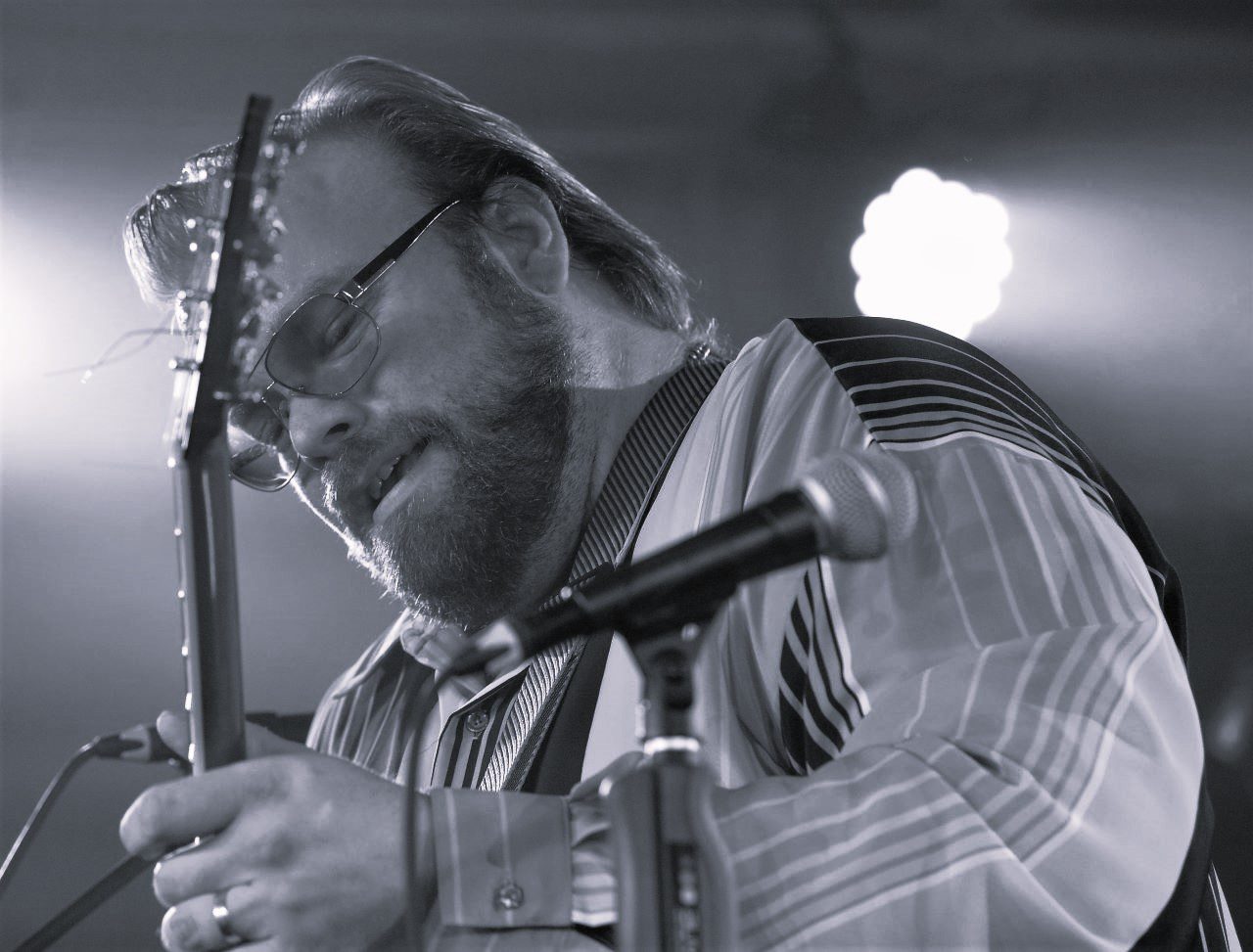
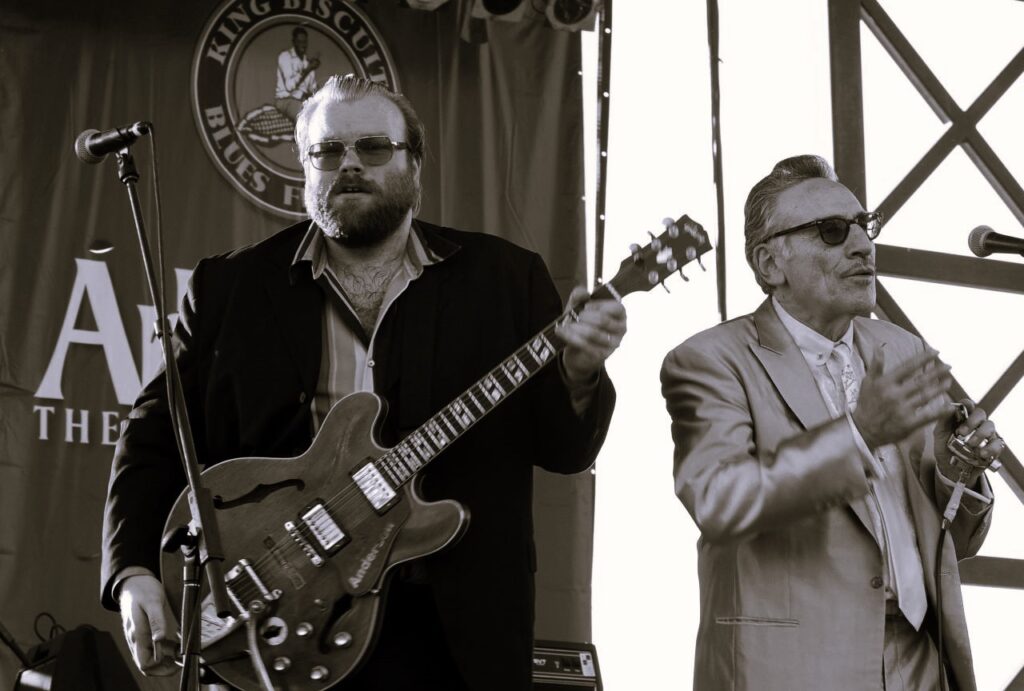
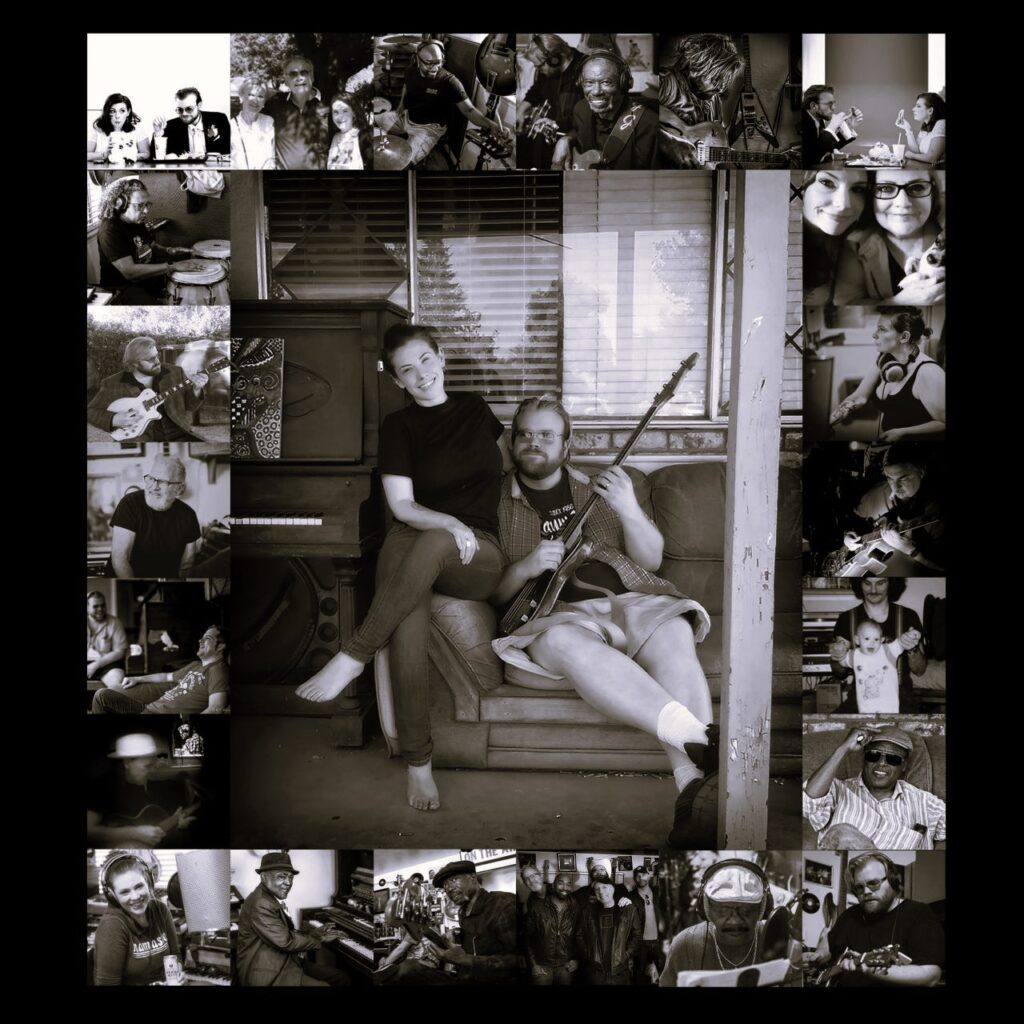
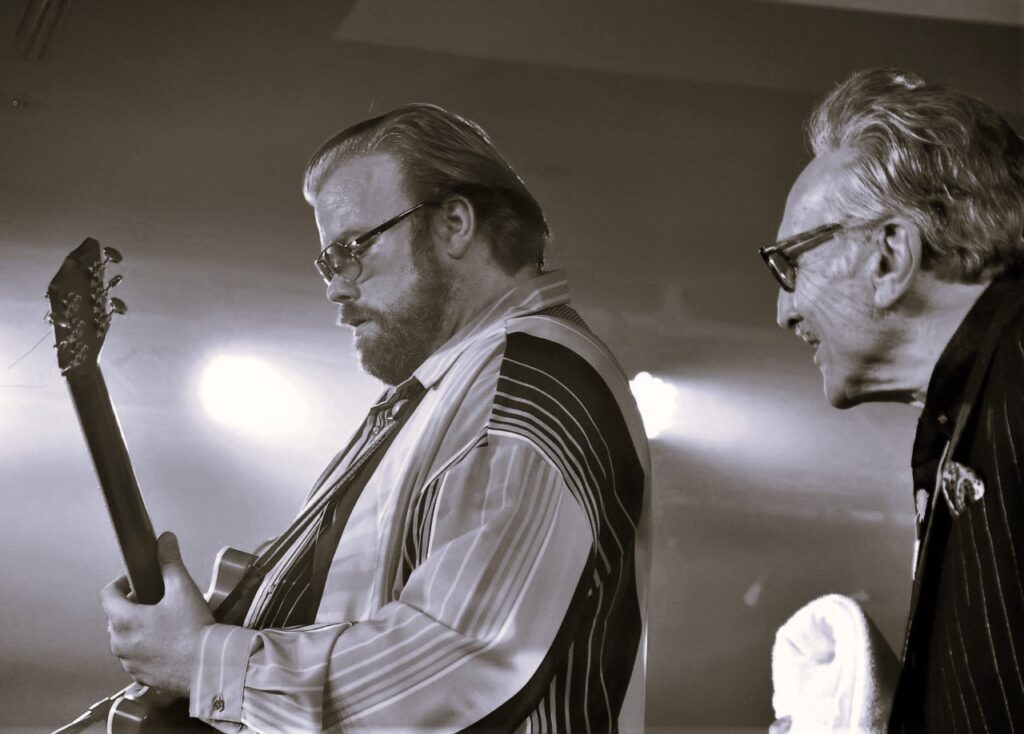
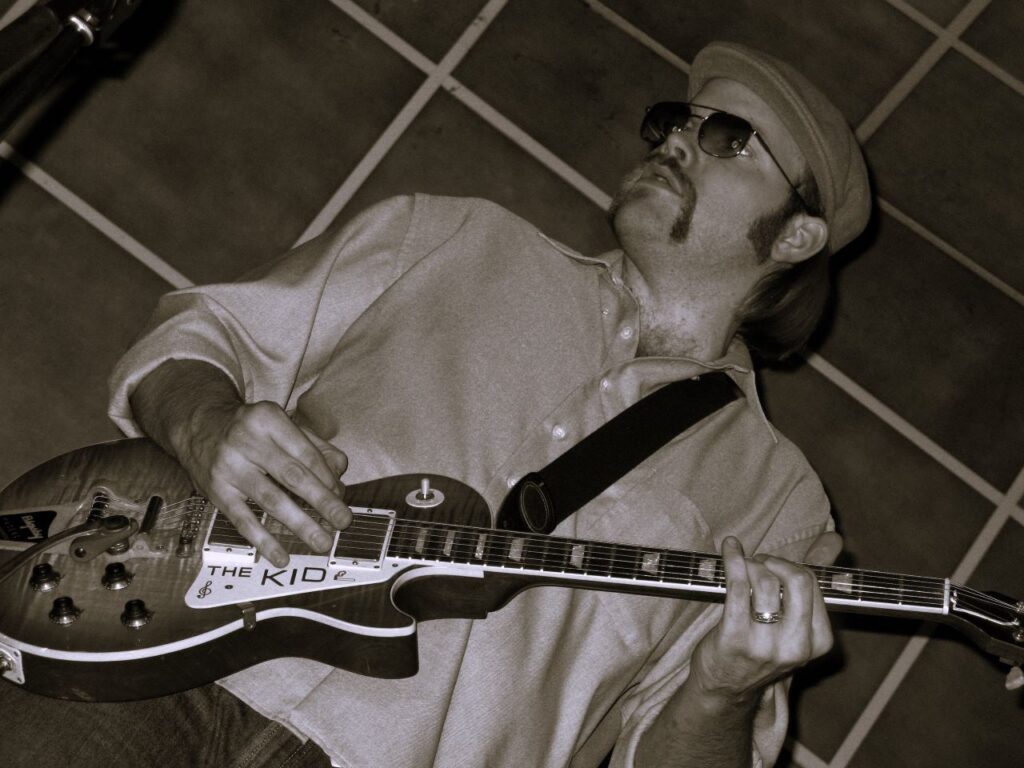
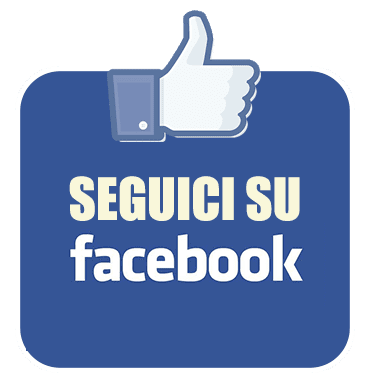




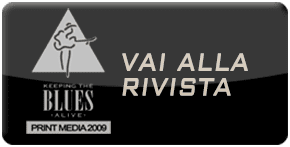



Comments are closed